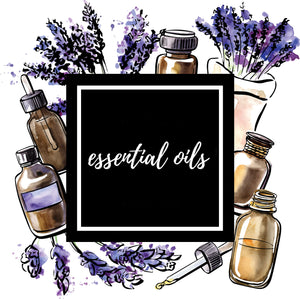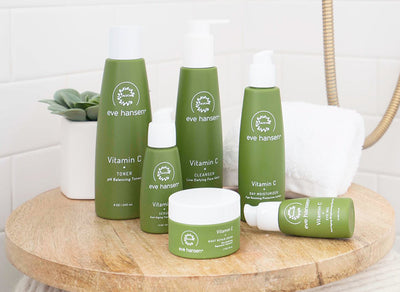
With its widespread popularity, almost everyone is familiar with the term ‘essential oils’, and with so many options for essential oils on the market, questioning the purity and integrity of the oils we buy is absolutely necessary. The versatile nature of essential oils enables them to be used topically, in DIY projects for home and health, and for aromatherapy. Because we are so openly and frequently exposed to the oils we use, there are a few things to consider before selecting a product. Read on for a quick explanation of what essential oils are, their benefits, and why selecting an organic oil is important.
What are Essential Oils?
Essential oils are highly concentrated natural oils, or the ‘essence’, of the plant they are obtained from. These oils also contain the characteristics and fragrance of the source plant. There are hundreds of essential oils, each possessing their own unique scent and array of health benefits. Some of the most common essential oils include: lavender, tea tree, peppermint, eucalyptus, bergamot, chamomile, and sandalwood.
Most essential oils (with the exception of citrus oils) are typically extracted by a process called steam distillation - applying high steam until the oil vaporizes. This extraction process is what differentiates essential oils from carrier oils, including coconut oil, almond oil, and argan oil, which are extracted from a cold pressed process.

Why Essential Oils?
For centuries, essential oils have been used as a natural alternative to medicine because of their antibiotic, antimicrobial, and anti-inflammatory benefits. Because of these properties, various essential oils are able to combat many skin conditions including cuts, wounds, ringworm, fungus, and skin tags. For topical use, always dilute oils as they are too potent to be used on the skin at full-strength.
In aromatherapy, essential oils are commonly used to ease stress, boost mood, repel insects, and improve sleep. When the oil molecules are inhaled, they influence the limbic system - the part of the nervous system that controls emotions - and other parts of our brain to affect our feelings, hormones, metabolism, and other bodily functions.
In addition to medicinal and aromatherapy use, essential oils are a great natural alternative for many household products that are usually made using toxins and harsh chemicals. Essential oils can be found in natural cleaners, fabric sprays, bath salts, candles, soaps, shampoos, and lotions.
Organic...Does it Matter?
Essential oils that are certified organic have been distilled from plants that comply with the USDA National Organic Program’s standard of farming. Essentially, when something is classified as organic, it means the product was made without the use of pesticides. For essential oils, this means that the entire process - from planting to extraction - happens without the use of toxic pesticides, synthetic nitrogen fertilizers, or GMOs. Choosing to go organic with essential oils frees the user from concern about topically applying an oil with toxic counterparts, and from inhaling harmful chemicals/pesticides during aromatherapy.
A USDA certification for organic products is crucial as more and more companies are being identified as falsely advertising their product as organic.
According to the United States Department of Agriculture (USDA), being classified as “100% Organic” means that:
- The product “contains 100 percent organic ingredients (excluding salt and water, which are considered natural)”
- The product is produced without using synthetic preservatives, pesticides, chemical fertilizers, petrochemicals, dyes, genetic engineering, ionizing radiation or any other excluded methods
- The product is free of GMOs
- The product’s ingredients are sourced from farmers and handlers that are inspected every year

Eve Hansen’s Promise
As a company who prides itself in being responsible with our actions, we have updated all of our essential oils to 100% USDA Certified Organic because quality matters! Check out our collection of organic essential oils.
Happy Healing!


